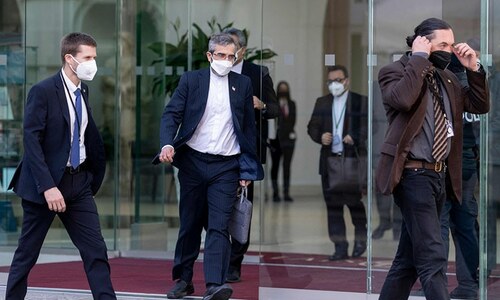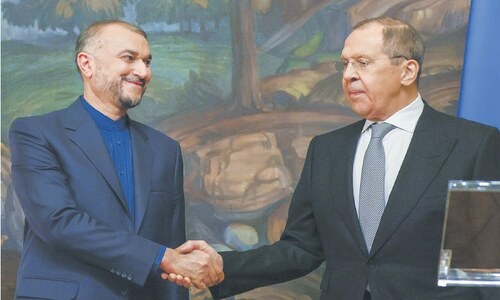TEHRAN: Iran on Wednesday said it had sent documents on its undeclared nuclear facilities to the UN atomic watchdog, bringing it a step closer to reviving its 2015 nuclear accord.
Iran has restricted some inspections by the International Atomic Energy Agency (IAEA), which had previously called on Tehran to resolve questions surrounding the previous presence of nuclear material at undeclared sites.
“We provided on March 20 the documents that we had to send to the IAEA,” said Mohammad Eslami, the head of the Atomic Energy Organisation of Iran.
He added at a news conference that “most likely, the agency’s representatives will come to Iran to review the responses and then prepare their final report”.
An agreement reached between Iran and the IAEA in March “seeks to resolve the issues regarding four sites”, Eslami said.
“The ambiguity over one of the locations has been resolved so far, and we are hopeful that (outstanding issues concerning) the other three sites will be closed” by June 21, he added.
On March 5, IAEA chief Rafael Grossi visited Iran and said the agency and Tehran had agreed on an approach for resolving issues crucial to reviving the country’s nuclear accord with world powers. Eslami’s remarks come as talks in Vienna to restore the 2015 deal, known formally as the Joint Comprehensive Plan of Action (JCPOA), have been on pause for nearly a month.
The deal gave Iran sanctions relief in exchange for curbs on its nuclear programme to guarantee that Tehran could not develop a nuclear weapon — something it has always denied wanting to do.
But the US unilaterally withdrew from the accord in 2018 and re-imposed biting economic sanctions, prompting Iran to begin rolling back on its own commitments the following year.
The negotiations that started about a year ago involve Iran as well as France, Germany, Britain, Russia and China directly, and the United States indirectly.
But talks were halted on March 11 after Russia demanded guarantees that Western sanctions imposed following its invasion of Ukraine would not damage its trade with Iran.
Days later, Moscow said it had received the necessary guarantees, but the impasse has continued as Tehran and Washington have traded accusations over the causes of the delay.
Published in Dawn, April 7th, 2022














































